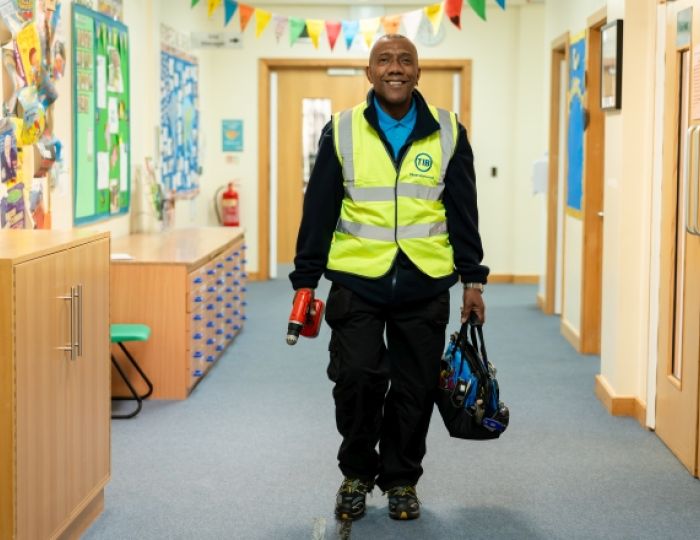September 2017 marked the start of a rare fallow year that saw no major overhauls in education, but this year is quite different.
Our legal duties are being stretched again with various updates to the ‘Keeping children safe in education’ statutory guidance (KCSiE). GDPR is really starting to make its presence felt. Then, of course, there are the ever-evaporating finances, staffing crises and significant updates to both Ofsted and the Church of England’s SIAMS school inspections frameworks. In some ways it’s hard to know what to focus on first!
My child protection radar says I should look at KCSiE initially, but in reality we must first look at our budgets – and in particular at two major announcements that will affect them.
Running late
The first of these are the incoming additional staff pay rises and teacher pay rises. What we know is that the anticipated 4% pay rise for additional staff (spread over two years) has significantly increased to between 16% and 20%, depending on colleagues’ pay scales. There’ll be a definite impact this year – somewhere around £17,000 for the average sized school – but it’s the 2019/20 budget that will likely see a steep rise in costs, easily over £50,000 above anticipated increases. That alone will do much to damage already tight budgets.
The real concern, however, is teaching salaries, including leadership. At the time of writing (late July 2018) the DfE had just published the recommendations from the School Teachers’ Review Body (STRB). Frustratingly, I had been informed by the STRB that it submitted its recommendations to the Department in early May this year; judging by their tone of voice, they were as frustrated at the DfE’s delayed publication as school leaders. Interestingly, the publication date is followed by a six-week period of consultation that, usefully for the government, closes just as schools return.
Publishing on the 24th July, after the vast majority of schools have closed for the summer, means that school leaders will likely have had very limited access to their finance officers when calculating the impact of the pay rise. If I were cynical, I’d wonder if this was deliberately planned…
Significant pressure
So where has this 3.5% pay rise come from? The NEU had called for a pay rise of 5%, following on from the 6.5% pay rise awarded to NHS employees in March this year. This is arguably a minimum pay rise, given inflation over the last few years, but enough of a sweetener to calm the unions. Maybe.
The general advice to headteachers had been to factor in a 2% increase. If that’s what you’ve budgeted for, then the recently announced dip in in leadership pay rewards (1.5%) will create some overhead. Equally, if the government is true to its word that this increase is funded, you may find that you have a little of bit of unexpected excess. Don’t worry, that’ll be absorbed by the TAs – it’s all got to come from somewhere!
Your priorities
Let’s pretend for now that a magical formula for funding schools fairly (in the true sense – not the ‘unfair’ funding formula we have currently) has been put in place. Budgets aside, what else should you be concentrating on throughout 2018/19?
First, you must ensure that all colleagues, volunteers and governors read section one of KCSiE 2018. Note that the document in question has increased in size by nearly 50% since it was first reviewed in 2016, and that it’s now mandatory for teachers to also read annex A. I’d suggest you keep a register for colleagues to sign, stating that they agree with and understand what they’ve read, along with the Child Protection, Behaviour, Code of Conduct and Safeguarding policies.
Note that there are key distinctions in the language used, notably ‘must’ and ‘should’. The term ‘must’ means the person in question is legally required to do something. ‘Should’ is used when the advice set out should be followed unless there’s good reason not to.
Senior leaders should further note some significant changes to section 3, ‘Safer Recruitment’. A core change alongside GDPR is the process around requesting references; these can now only be requested before interview with a candidate’s agreement. There should be no reason for the candidate to disagree – why include them as a reference otherwise? – but you must be clear that you’ve asked them before the request is made.
Complete overhaul
Finally, a brief word on the inspection frameworks. The new SIAMS framework has been completely overhauled, and in keeping with the current vogue, the bar has been raised. There’s now one core question, as opposed to the four in the previous version, with that core question essentially sub-divided into seven sections.
The language has been changed, as have the expectations concerning relationships between schools and churches. Given that this affects more schools than any other group (over 5,000) these changes are considerable.
Initial estimations are that less than 2% of schools will be able to achieve the revised highest grade. At a time of constrained finances, reduced staff and depleted resources, it’s arguable that the church has chosen to raise the stakes at a time when schools’ morale is at an all-time low. If only 2% will be able to attain the highest grade, will anybody realistically try? I’d like to think so, but it does seem quite a challenge.
As for Ofsted, based on what we know already we shouldn’t expect to see too much change just yet. As ever, though, the devil is in the detail, which we should know by September 2019. For now, we do know that the 3-year cycle has been replaced with 4 years (given how stretched the service is, this is no great surprise) and that details for the 2019 overhaul will come out throughout the year. Will we see the removal of the outstanding grade? Who knows…
In short, the only thing that’s clear about this year is that it’s going to be a busy one!
Your to-do list
• First and foremost is the need to address the growing funding gap. This, more than anything else, will eat your time.
• Once that’s been considered, there are still safeguarding updates and GDPR agreements that will require embedding.
• If that wasn’t enough, there are new inspection frameworks to get your head round. Thought this was going to be a quiet year? Think again…
Anthony David is an executive headteacher of two North London schools.










